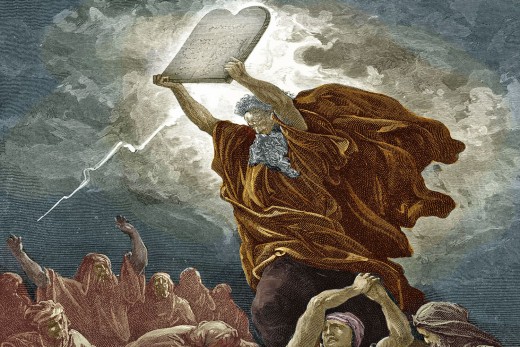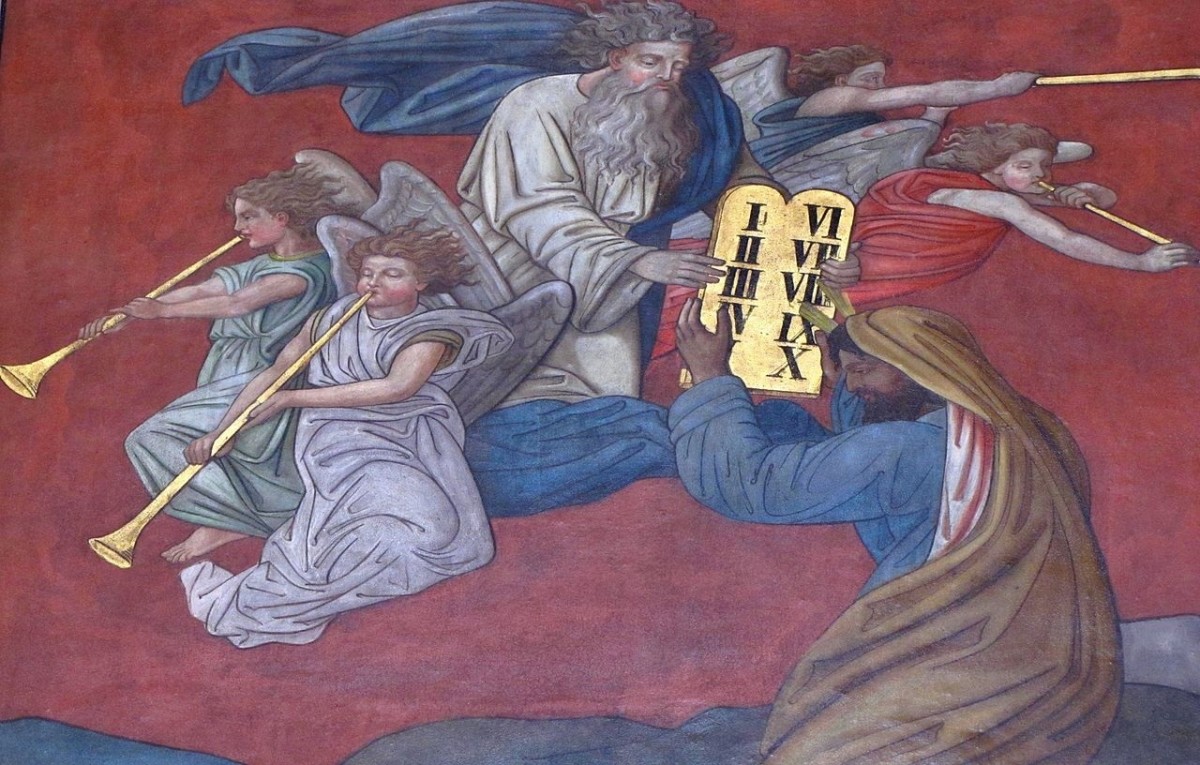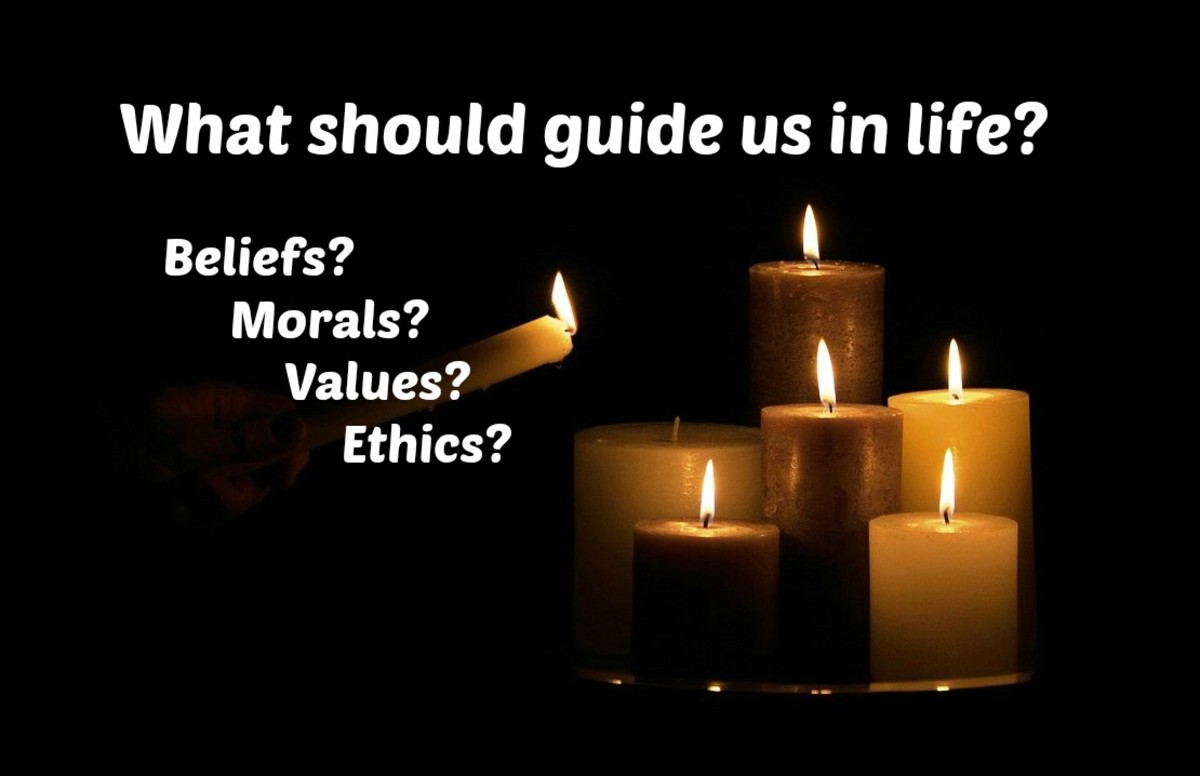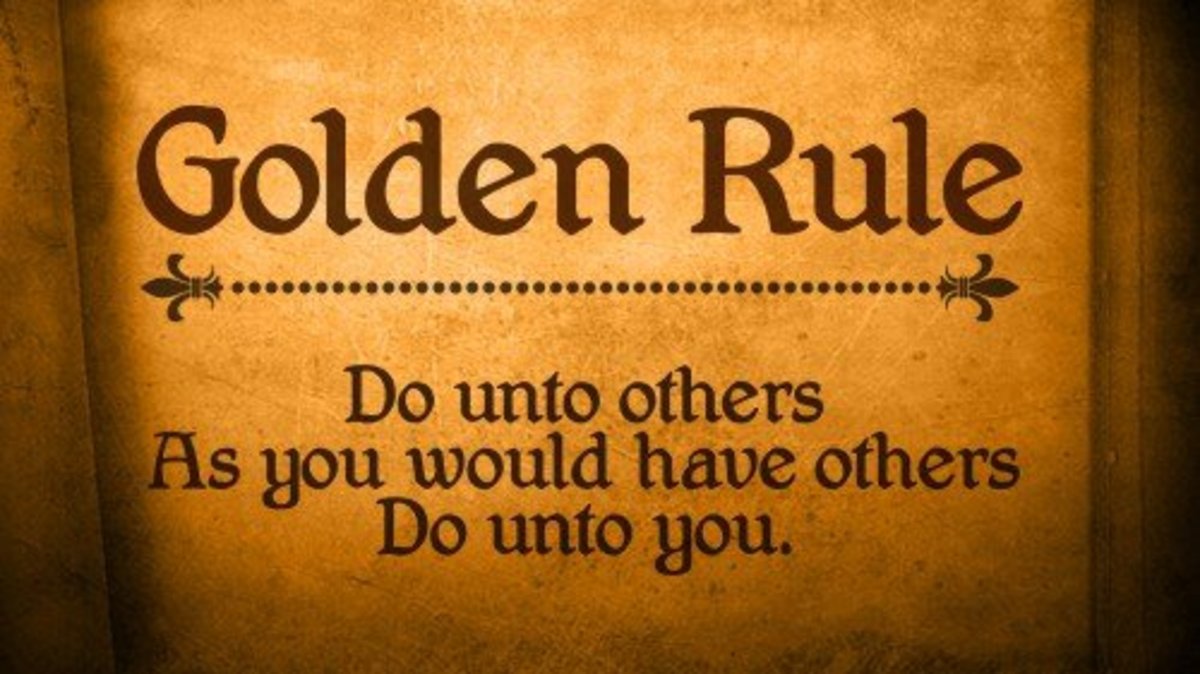Religion & Morality

Objective Moral Truths
In every major religion, there is a list presented to us that outlines that which we should not do. Since they come from a god, they are seen as absolutist and should be followed to the T but this, to me, is unsettling.
Personally, I have a very consequentialist morality. I believe that whether something is moral should be based on the circumstances as much as the act: killing is wrong unless it serves a greater purpose (e.g. saving a greater number of people); theft is wrong unless it is for mere survival; assault is wrong unless properly justified.
If there is such thing as objective morals, who decides them? Even if there is a god, that does not mean we should trust him/her to decide how we should live our lives, much in the same way we don't allow our parents to do so. Surely, the objective morality system would be decided on by a group of elected officials to ensure the preservation of the human species.
As every major religion has a list objective morals, which set should we follow? All of the individual lists have their flaws and all have their advantages, For example, the Ten Commandments of the Judeo-Christian bible outlaws murder (surely that is common sense?) but also uses the first 4 commandments just to ensure that he is the only god that is worshiped, a purely egotistical move. The qu'ran is against adultery, which is great except it's punishment for such an offence is death. There are many more examples like these that can be found with just a brief look at the holy books.

Why should we be moral?
This question is posed to atheists like myself frequently and, so far, the best response I've seen was from the great Richard Dawkins in his bestseller The God Delusion: "Do you mean to tell me the only reason you try to be good is to gain God's approval and reward, or to avoid his disapproval and punishment? That's not morality, that's just sucking up". On the same train of thought, Einstein once said "If people are good only because they fear punishment, and hope for reward, then we are a sorry lot indeed."
The main reason that we should be moral is reciprocation: treat others how you would like to be treated. The concept of reciprocation is something I will return to in explain where our morals come from but the best way of looking at its significance in morality is the survival of our species. If I do not kill people, causing other people to reciprocate that mercy, then in effect I just prevented the deaths of several people by being "moral".
In addition, shouldn't we be moral just for purposes of social acceptance? If it has been outlined (before Mt Sinai even occurred) that we should follow certain rules then surely, due to societal pressure, we should just follow these rules? I can't be the only person who questioned where people got their morals before this event, especially since people had exactly the same laws in their civilizations before the time of Judaism.
A Case Study...
In the Christian bible, we are presented with a wide array of stories of the same events, including the events of Mt Sinai and the Ten Commandments. Because of this, we see multiple versions of these commandments and are left to ponder: which moral model should we follow? To what extent does each account portray God's true thoughts?
For instance, in the bible there is five versions of the ten commandments which mostly have the same message but, due to their different wording, can be interpreted in different ways. One example of this is in Exodus it says "I am the Lord your God who has taken you out of the land of Egypt" which, does not sound like a commandment but is just another of God's egotistical moments.
Again in Exodus 34, God says you should "Celebrate the Festival of Unleavened Bread. For seven days eat bread made without yeast, as I commanded you. Do this at the appointed time in the month of Aviv, for in that month you came out of Egypt."
If in the religious texts of one faith, the morality cannot be objectively outlined: how are we expected to follow these texts as a way of life?

Hypocrites
From everyday life we know that followers of any religion don't take every aspect of them seriously, especially since the teachings are often contradictory to themselves but even in the texts of the religions are massive hypocritical moments. For instance, in the Judeo-Christian Bible it states that murder is wrong yet god incites genocide of many people simply for believing in the wrong god.
In addition, God says in his commandments that "Thou shalt not steal" yet he tells the Israelites to steal the goods and plunder the livestock of their neighbours. With these blatant examples of disregard for his moral code, why should we trust him? He incites murder, theft, impregnates a woman without permission and asks for sacrifice of people including the virginity of Lot's daughters instead of just saving them with his omnipotence!
A video that I enjoyed on the subject of morality
A dilemma
When faced with objective, absolutist morality, there is multiple issues you will run into with little chance of avoiding them.
Firstly, if killing is not allowed under any circumstance and person A takes 10 hostages and threatens to kill them. You have a sniper rifle pointed at his head but the round will not pass through his body armour. Do you pull the trigger and kill him to save the ten? If so you killed one and saved many. If not: you spared one but allowed him to kill 10.
Secondly, person B steals £1,000,000 from a huge corporate bank without harming anyone and donates every penny to a charity that clothes and feeds the homeless. You find the thief by chance and have the opportunity to arrest him. What would you do?
These two situations are extremely hard to decide on if you operate on absolutist morality but personally I found it quite easy. I'd love to know what your thoughts are on this!

My final thought for all of this is: do we need morals?
If we had one day (like The Purge) with no laws, no morals and no reason to refrain from anything, what would happen?
In the purge it led to a more peaceful society on days other than Purge night but I believe it would instead just be chaos at ll times because killing or maiming would, surely, cause the perpetrator to become mentally unstable.
Again, what are your thoughts on all of this? Let me know!








